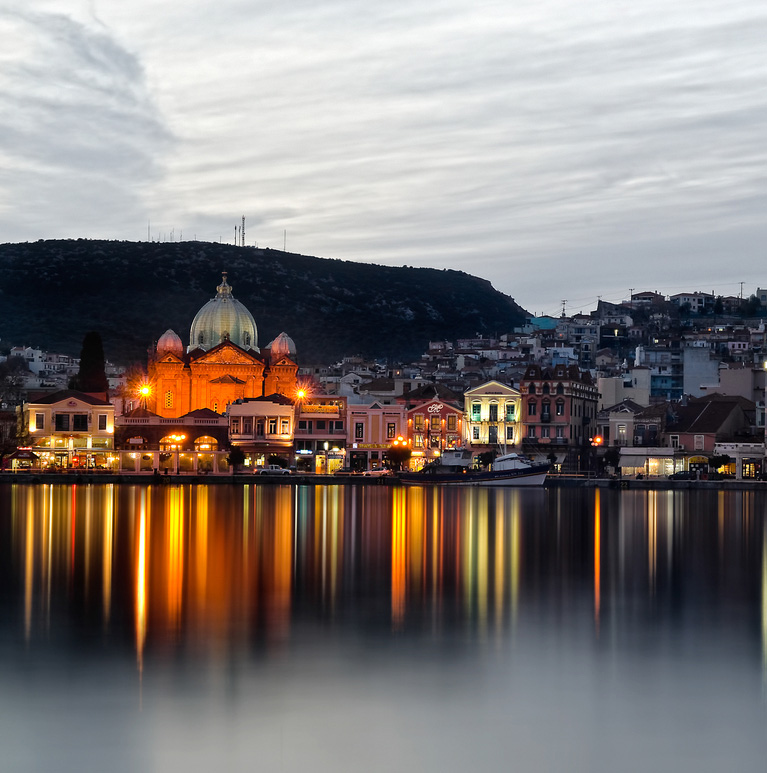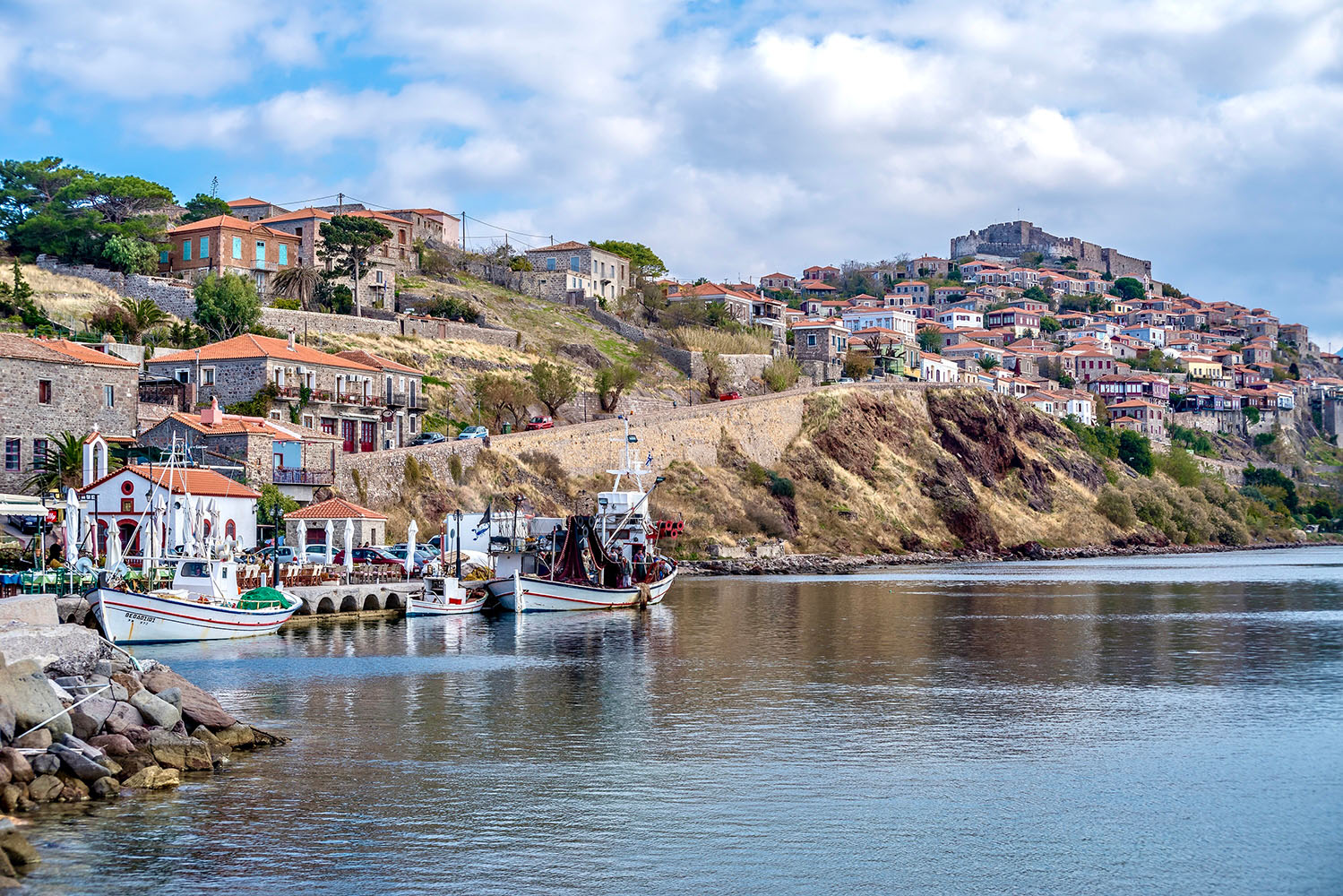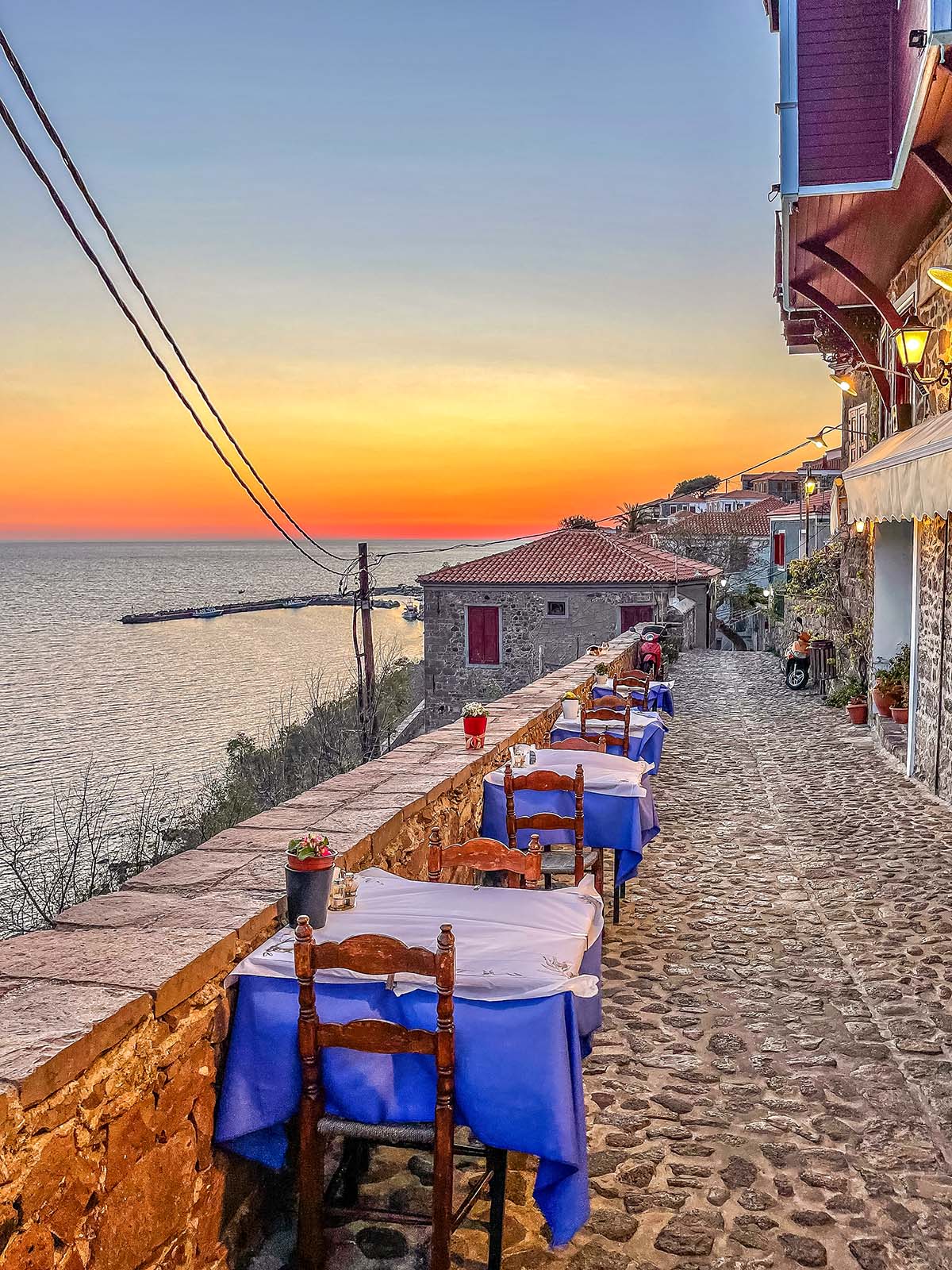How to enjoy Greek Easter
Experience Greek Easter here on the island of Lesvos.
Are you new to Greece and thinking about booking a springtime trip to one of the world’s most popular holiday destinations? Worry not, get to know Greece through experiencing the country’s biggest celebration!
Some 90 per cent of the population of Greece is Greek Orthodox while the rest of the population is Muslim, Catholic, Jewish and of other minority faiths. Greek Orthodox Christians commemorate the Biblical event of Jesus being crucified.
If you have any Greek friends, you’ve probably already got an idea about the sheer scale of the celebrations! If not, Real Lesvos is here to take you step-by-step through some of the main events of Greek Easter that are unknown to most people who visit Greece. It's a truly special time to be on Lesvos!
Greek Easter 2025
Greek Easter, or ‘Pascha’, begins with the Great Lent known as ‘Sarakosti’ when people fast for 40 days before they break their fast on Easter Sunday. This fast means that Greeks cannot eat any meat, fish, dairy products, oil or wine. The day the fast starts is known as Clean Monday.
They believe that this will cleanse the body and spirit in preparation for the acceptance of the Resurrection. Greek people will also attend church more often during this period, however the most important Church services will take place in the week running up to Easter Sunday; some even go to church twice a day!
This week is called ‘Megali Evdomada’, the ‘Holy Week’. The rest of the world’s Eastern Orthodox, Coptic and other communities which follow the Byzantine Rite, all have similar traditions. Here at Real Lesvos, we hope to give you an idea of the religious and cultural traditions of Greek Easter.
Holy Monday
Holy Monday, the first day of Greek Easter, commemorates the withering of the fruitless fig tree from the Book of Matthew; this is thought to symbolise the divine judgement that will befall those who do not bear the “fruits” of repentance.
The hymns or ‘stichera’ sung on this day recall the Genesis story of Joseph, the son of Jacob, whose innocence and suffering at the hand of his fellows and the false accusation that were hurled at him, foreshadow the Passion of Christ.
Holy Tuesday
Holy Tuesday commemorates the Parable of the Ten Virgins from the Book of Matthew in which 10 virgins take part in wedding celebrations and must wait for the Bridegroom to arrive, bearing oil lamps in the dark.
Five of the virgins have prepared for the long wait, bringing enough oil to last through the night, while the other five run out of oil at midnight, just when they’re called to the Bridegroom! Because they must leave the wedding ritual in search of more oil, they are eventually disowned.
The other virgins could not share their oil. This Parable, with its teaching of vigilance, introduces a theme of the first half of the Greek Holy Week. In this parable, Jesus is the Bridegroom and the virgins are the Christians.
The bridal chamber that the virgins are the torchbearers for is used as a symbol not only of the Tomb of Christ but, more importantly, of the state of the saved on the Day of Judgement.
Holy Wednesday
The third day of Greek Easter is Holy Wednesday, the day that commemorates the ‘sinful’ woman who anointed Jesus before his crucifixion and burial. The Hymn of Kassiani, written in the 9th century, is sung and lasts up to 25 minutes and tells the story of the woman who washed Christ's feet in the house of Simon the Leper.
It is also mostly written from the perspective of the ‘sinful’ woman who repents before Jesus. This Byzantine composition of this hymn is widely considered the liturgical peak of the year because of its great beauty.
In Greece, members of the Church receive ‘Holy Unction’ in the evening: just as the sinful woman’s sins were forgiven because of her penitence, the Eastern Orthodox believers must also be encouraged to repent in the same way.
The Mystery of Unction is in preparation for the reception of Holy Communion on Holy Thursday. This custom originated when Greece was under Ottoman occupation: parish priests, considered uneducated, were not permitted to hear confession; this sacrament, a means by which to forgive sin without confession, was thus performed!
On this day, Greeks also remember Judas Iscariot’s agreement to betray Jesus. In fact, it is on account of Judas’ actions on this day that some Orthodox Christians fast on Wednesdays throughout the year!
Holy Thursday
On Holy Thursday, the fast is relaxed to permit consumption of wine and oil. Also, the liturgical colours of the Orthodox faith are generally bright, including white. In the evening of Holy Thursday, however, the clergy change to black so as to mark the beginning of the Passion of Christ.
Hymns are sung about the Washing of Feet from John, episodes from Matthew and Jesus Sweating Blood from the book of Luke. On this day, the 12 Gospels are read in which Jesus presents his final instructions to his disciples.
Traditionally, a procession is made during this reading; after the reading of the fifth gospel, the lights are turned off and bells begin to slowly toll while a large cross attached to an icon of the body of Christ is carried throughout the church. This cross is placed in front of the Royal Doors of the iconostasis.
Clergy will strike the icon of Christ on his hands and feet with a stone multiple times, and then stand the cross up to be censed. The faithful come forward to kiss the feet of Christ on the cross. On Holy Thursday (or earlier) women will make ‘tsoureki’, a delicious brioche bread with almond flour, cardamom, mahlab, mastic and orange zest, while families will dye eggs red and go to the market in preparation for the breaking of the fast.
If you’re visiting Greece during this time, you’ll spot these coloured eggs everywhere! As in the West, eggs play a large part in the modern Easter celebrations in Greece as they represent rebirth and resurrection. They are painted, usually red, to symbolise the blood of Christ, and rolled down hills to commemorate the stone that fell from the tomb that held Christ’s body and, if they’re chocolate, they’re eaten by children! This egg tradition is the distillation of a pagan custom in veneration of the Springtime. The Persian New Year, during the vernal equinox, is also marked by the painting of eggs.
Holy Friday
Holy Friday is a day of remembrance. Christ’s body is ‘taken down’ from the cross and is carried to a table in the nave, symbolising the Tomb of Christ called the ‘Epitaphios’, an icon or embroidered cloth with the image of Christ prepared for burial.
Women and children bring chrysanthemums and other flowers to decorate the ‘Epitaphios’ and the Church service takes place around it. The clergy chant the Lamentations, ‘Ta Enkomia’, verses from Psalm 119.
In the evening, people join a candle-lit procession that begins in the church and leads through villages, towns or city neighbourhoods. The music from the choirs and bands of the procession can be heard all over Greece and Cyprus at this time!
Feel free to join Greek Easter festivities, but please be respectful. People also observe a very strict fast, known as the Black Fast, in which they abstain from all food and drink until midnight on Saturday.
Holy Saturday
Holy Saturday is when Christ physically “rested” in the tomb and when he performed (in spirit) the ‘Harrowing of Hell’ and rose up to ‘Paradise’, having liberated those who had been held captive in ‘Hell’. On this day, the Divine Liturgy of St Basil the Great is celebrated and, in Greece, the clergy cover the church with laurel leaves and flower petals so as to symbolise the breaking of chains from Hell and Jesus' victory over death. If you're in Greece, do try to visit a church at this time as the floral decorations are truly beautiful!
The liturgical atmosphere changes from sorrow to joy during this time. On Greek Easter Saturday night, the church service, known as the Paschal Vigil, is when the Epitaphios is removed from the central nave of the church and placed on the altar, where it remains until Resurrection.
At midnight this service ends: all light-sources in the Church are extinguished, while church-goers await in darkness and silence for the Resurrection of Jesus Christ, marked by the deliverance of the Holy Light.
A priest comes out holding the Holy Light and shares it with the church-goers; people pass the fire to each other, leaving the church to bring the holy light back to their home. Traditionally every Greek holds a candle, or ‘lambada’ for this purpose.
Godmothers and godfathers will gift a decorated ‘lambada’ to their godchildren for use on Holy Saturday. Some villages, towns and cities even have firework shows, there's usually one held in Mytilene each year. It is time for the Greek Easter egg cracking tradition when two people crack their dyed eggs by knocking them together!
Families will share a traditional dinner of ‘Mageiritsa’ - a soup made of lamb intestines and lettuce among other mezze. This is the first meat-based meal after Great Lent. They say ‘Christos Anesti’ (‘Christ is risen’) to each other - this is said after Easter Saturday well into the following week! People respond ‘Alithos Anesti’, which means ‘Truly, he is risen’.
Easter Sunday
Today the usual greeting is 'Christos Anesti - Christ is Risen'.
Other than the religious aspects of Greek Easter, ‘Easter’ is synonymous to family in the eyes of Greeks. Easter Sunday is when families come together for a feast with music and dancing. They roast lamb or goat on a spit outside, along with ‘kokoretsi’ (the animal’s kidneys, liver and intestines) and share mezze and ouzo or table wine called ‘retsina’.
Although the breaking of the fast appears to be a carnivore’s delight, vegans and vegetarians will find a lot of Greek food on offer that caters to their needs during this Easter season because the food has been adapted to the Great Lent.
The reason why lamb roasted on a spit is served is because, according to the Apostle John, Jesus is the Lamb of God. For Greeks, eating lamb honours the belief that Jesus died on the cross for the sins of humanity. Easter is called Pascha in Greek, so we wish you a Happy Easter or Kalo Pascha!
If you would like to experience this special holy festival, get in touch with our expert team on Lesvos and we can help plan your stay!













